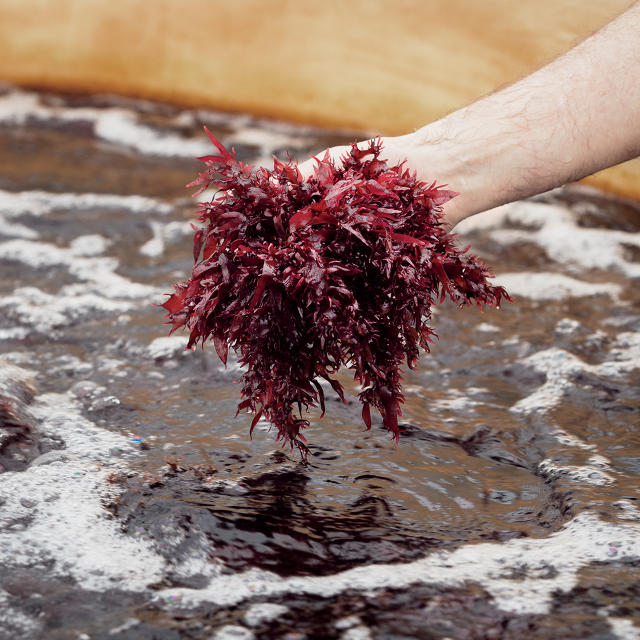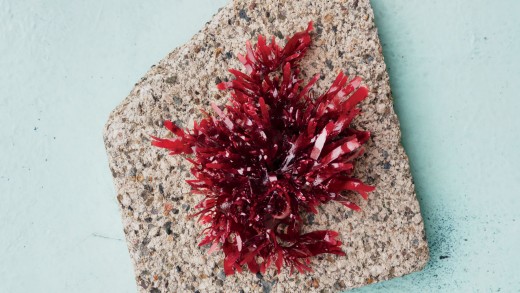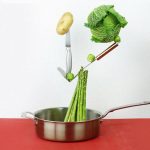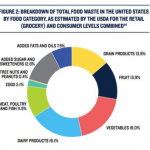Move Over, Kale: Dulse Is The Superfood Of The Future
Dulse, a new strain of the red algae, is bringing bacon-flavored seaweed to the mainstream.
At Imperial Restaurant in Portland, Oregon, diners are getting a taste of the latest superfood to hit the market: dulse, a crimson seaweed that’s packed with nutrients and, when fried, offers up an umami flavor similar to bacon. “It disappears in your mouth,” says chef and owner Vitaly Paley.
Wild dulse, which is sold as a specialty item at places like Whole Foods, grows primarily on the shores of Ireland and the north Atlantic coast and is notoriously difficult to harvest: It’s plucked by hand and can deteriorate quickly. But the dulse that Paley sprinkles atop his tuna poke doesn’t come from the ocean—it’s farmed in 6,000-liter tanks at Oregon State University’s Hatfield Marine Science Center. Marine biologist Chris Langdon began cultivating this strain of dulse as a food for abalone in the mid-1990s, but it wasn’t until his colleague Chuck Toombs, from the OSU College of Business, toured the lab in 2014 that Langdon considered serving it to humans.

With wild dulse selling for up to $90 a pound and sales of seaweed snacks in the U.S. accounting for roughly $500 million in 2014, Toombs sensed that Langdon might be sitting on a gold mine. Never before has dulse been cultivated outside of the ocean on a commercial scale. Plus, Langdon’s strain grows fast—really fast. “Under optimum conditions, it will double or triple its weight each week,” he says.
While OSU’s Food Innovation Center tests commercial preparations for dulse, Langdon’s strain is already being served at select restaurants in Oregon, and Northwest grocery chain New Seasons recently debuted a soy-and-ginger dulse dressing. This year, Toombs plans to hit the market with snacks like dulse crackers and a smoked peanut popcorn brittle through his new business, DulsEnergy.
Though Langdon and his colleagues are ramping up production, demand is still outpacing supply. “Our lawyers said, ‘We’ve never heard of anything like this. You guys have a market and you don’t have a product!’ ” says Toombs. For the producers, at least, it’s a good problem to have.
Fast Company , Read Full Story
(19)














